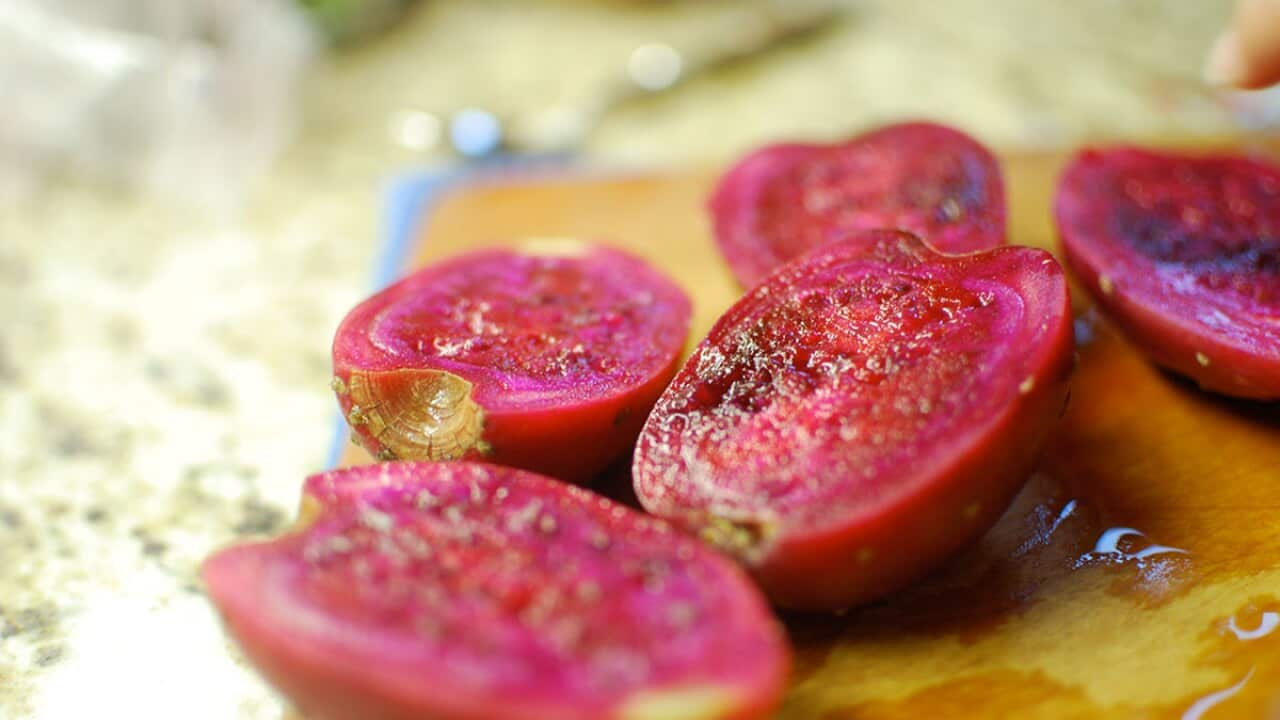It’s 2am on a weeknight and despite the fact that I’m swimming in a cloud of exhaustion, I just can’t sleep: I’m thinking about my son’s cultural future.
You see, a few months before I fell pregnant in 2019, my beloved Maltese mother passed away. Then, four months into my son’s life, my Irish father died.
The obvious heartbreak that comes with the compounded death of two parents in the space of 18 months soon followed. But it wasn’t until just recently that I mourned something beyond the loss of my cherished parents.
Like many first-generation Australians who grew up with their grandparents and extended families living overseas, I realised that the death of my immigrant parents also meant that a physical connection to my cultures had been severed.
I’m also aware that unless I work to restore that broken connection, my one-year-old may never identify with his European blood.
There’s one mighty lifeline to Malta and Ireland that can connect my son to his grandparents who have passed. It’s an innate preference for the foods of his heritage.
Unlike me, he won’t grow up hearing the Irish or Maltese accent day-to-day. His grandparents on my side won’t mind him or ever feed him. He will never taste Maltese (kannoli tal-Irkotta), served fresh from my mother’s kitchen. He won’t ever pick a fig from a tree in his grandparents’ European garden. He won’t ever come home from school to be treated to my father’s (or ‘calli’ as he used to call it): a hybrid version of the recipe he remembered his mother making back in Galway.
Despite my loss of my parents and their physical embodiment of my own cultural connection, I still feel hope. There’s one mighty lifeline to Malta and Ireland that can connect my son to his grandparents who have passed. It’s an innate preference for the foods of his heritage.
Empowered by the sensory experience of eating
On the surface, it feels weird that my son is obsessed with cheese – specifically ricotta. He can eat potatoes until his little belly is full and has a heavy inkling for cabbage. But his food preferences also seem natural. His ancestors have been eating these foods for centuries so shouldn’t it be a given that this new human feels it’s ‘normal’ to consume them too?
Take ricotta for example. Ricotta tastes like nunna’s cooking and the love of an overwhelmingly passionate Maltese grandmother – a love that’s familiar because he’s received it through me. So when I see my son’s facial expression as he eats ricotta (full-fat is a must), served fresh or perhaps baked and flavoured with lemon, garlic and herbs, I am a witness to joy.
Every time he gestures that he wants to eat more cheese or cabbage, I feel that his genes are embracing his heritage. At a cellular level, he’s deriving pleasure. Now that’s a cultural connection, naturally forged through food, if ever I’ve seen one. If I push through the ache of loss after the departure of love, I see a truth. I realise that I have an ability to reconnect my household’s tie to my parents, through storytelling and food. Knowing that I can easily fulfil my duty to influence my son’s cultural understandings means that I am no longer stressed by it. In fact, recognising that I can help my son ‘feel’ his grandparents through the sensory experiences of eating empowers me.
If I push through the ache of loss after the departure of love, I see a truth. I realise that I have an ability to reconnect my household’s tie to my parents, through storytelling and food. Knowing that I can easily fulfil my duty to influence my son’s cultural understandings means that I am no longer stressed by it. In fact, recognising that I can help my son ‘feel’ his grandparents through the sensory experiences of eating empowers me.

"I’ll only know if I have successfully fulfilled my matriarchal duty to hand down culture to my son when he’s older." Source: By Yasmin Noone
So now, I want to teach my son to eat – not just to receive nutrients – but to taste his roots. I want him to learn to ‘feel’ flavours, just like my mum used to when she ate the foods she loved.
I remember her reaction every time she tasted a generous slice of bread laced with salted butter or ate a freshly picked tomato. She’d close her eyes and moan with delight, then let out an exaggerated statement of satisfaction: ‘That is beautiful,’ she’d say loudly.
I also want my son to learn how national poverty and farm life shaped the dishes eaten by the Irish in the mid-1940s – when his grandad was a child. A staple diet of cabbage, boiled bacon and potatoes was common in Ireland back then. That’s probably why, as an adult, he maintained that food cooked simply was best and eating was more to receive nutrition than joy. However, whenever I cooked him a meal, a dish he would never make for himself – like slow-cooked short ribs or mussels with tomatoes, herbs and garlic (moules a la provencale) – he ate it with passion, shaking his head in approval, always verbalising a gracious tribute for the taste experience.
In fact, recognising that I can help my son ‘feel’ his grandparents through the sensory experiences of eating empowers me.
Culture and food, embedded in the genes
Beyond sharing the experiences of my parents, I think it’s important that my son also witnesses his mother’s cultural connection to the food of his grandparents.
He will do this by watching – and helping – me to cook everything from pasta to Maltese almond biscuits (biskuttini tal-lewz) and Irish stew. He’ll see me produce a dramatic reaction, similar to the one performed by his grandmother, to the dishes I like.
He’ll observe how eating an extra serve of mashed potatoes comforts my soul. He’ll witness my joy when daddy surprises mummy with a weekend breakfast that includes Irish black pudding.
I truly hope that my belief in the power of food to unite people across cultures and generations is well placed. If I’m lucky, I will witness a moment where he stops to appreciate a delicious dish. As he tastes the food of his heritage, he may give appreciation or even ask questions about the rich flavours that I continue to celebrate with him. Only time will tell.






